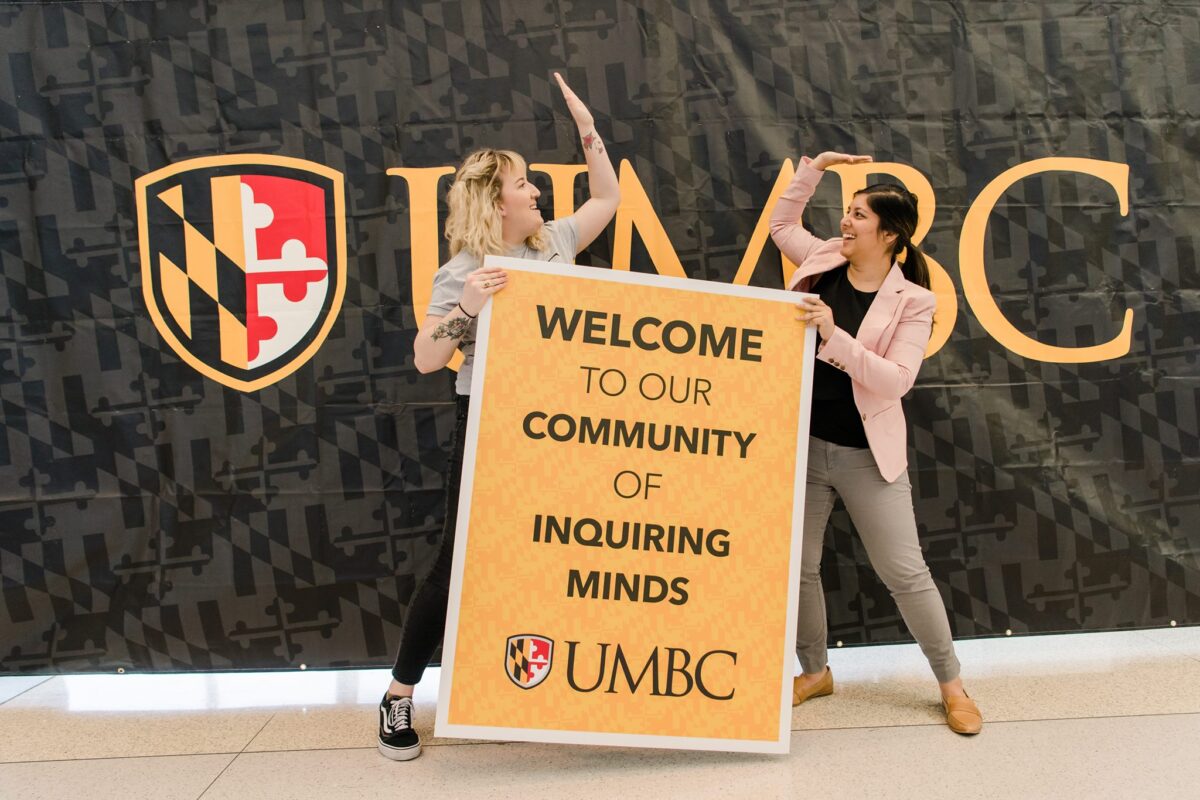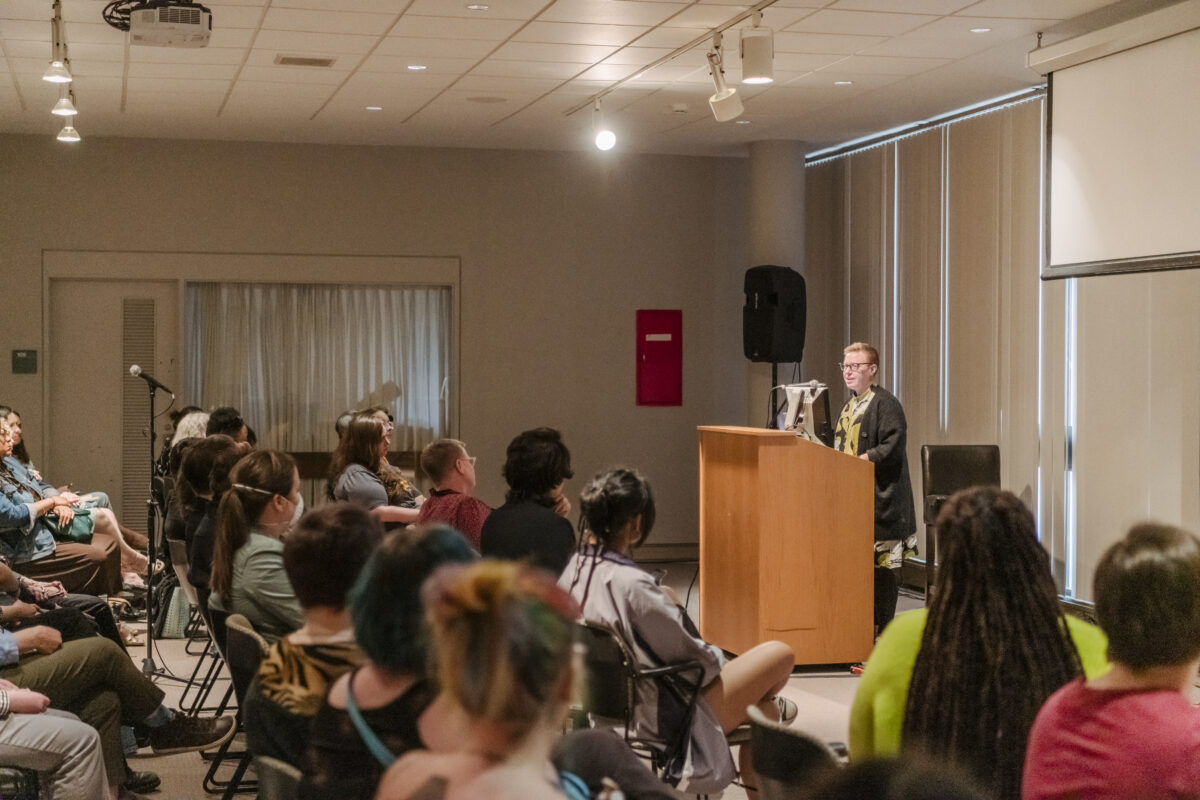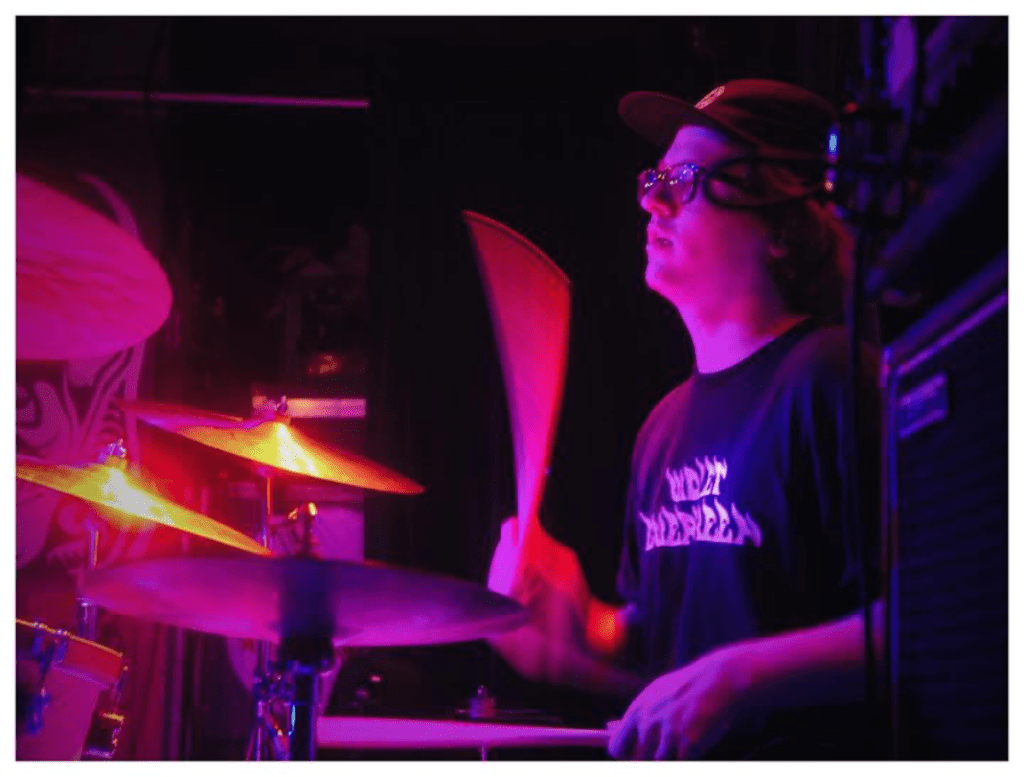![]()

Ronald Holzloehner (right) celebrates his successful Ph.D. defense with his mentor, Prof. Curtis Menyuk.
A Global Education in Telecommunications
Berlin, Germany native Ronald Holzloehner will receive his Ph.D. in Computer Science and Electrical Engineering at UMBC this month, after traveling the world while winning international acclaim for his research on how to make fiber optics communications faster and more reliable.
Holzloehner came to UMBC after receiving his master’s degree from the Technical University of Berlin and spending a year at UC Santa Barbara on a Fulbright scholarship. In late 1998 he came to UMBC and joined Dr. Curtis Menyuks research team in the Optical Fiber Communications Laboratory, which works closely with the telecommunications industry to push the frontiers of communications technology.
During his four and a half years at UMBC, Holzloehner and the rest of the team presented their work at national and international conferences, were published in respected journals, and won prestigious awards. Holzloehner received the Best Speaker Award at the UMBC Student Conference last year, and also won an IEEE LEOS student award fellowship last fall, an award of which only 1020 are given annually world-wide. His dissertation describes a new method for computing bit error rates in optical fiber communications systems.
Working with Curtis Menyuk was a good experience, and I certainly learned a lot, he says. I worked hard, many nights and weekends, but I wrote a bunch of papers, won some awards, got to travel the world by visiting conferences, and learned much about how science is conducted and managed in the US. What’s amazing about UMBC is the energy and tenacity with which it pursues its goals President Freeman Hrabowski does a whole lot to promote the school, much like a sports team.
Like other high-tech researchers, Holzloehner also experienced the ups and downs of the so-called New Economy. At the 2003 UMBC Engineer of the Year ceremony, Holzloehner spoke about the lessons high-tech industry has learned from recent scandals. Corporate greed existed not only at Enron, but also in the telecom industry, and I think we engineers should do whatever we can to fight for solid and sound business models, he said.
After an arduous search, Holzloehner accepted a postdoctoral position back in Germany at the University of Nurembergs newly founded Max-Planck Institute, and will start working there in July. The institute focuses on quantum optics, quantum computing, and some communications, while working closely with top companies like Lucent.
As he prepares to return home for a new chapter in his career, Holzloehner carries with him memories of his American education. The U.S. is really an amazing country, and it is still able to attract many foreigners that help it grow, he says. The advantage that the U.S. has over many other countries is impressive, at times frightening. People should remember that many of these achievements are due to immigrants who work extremely hard.



